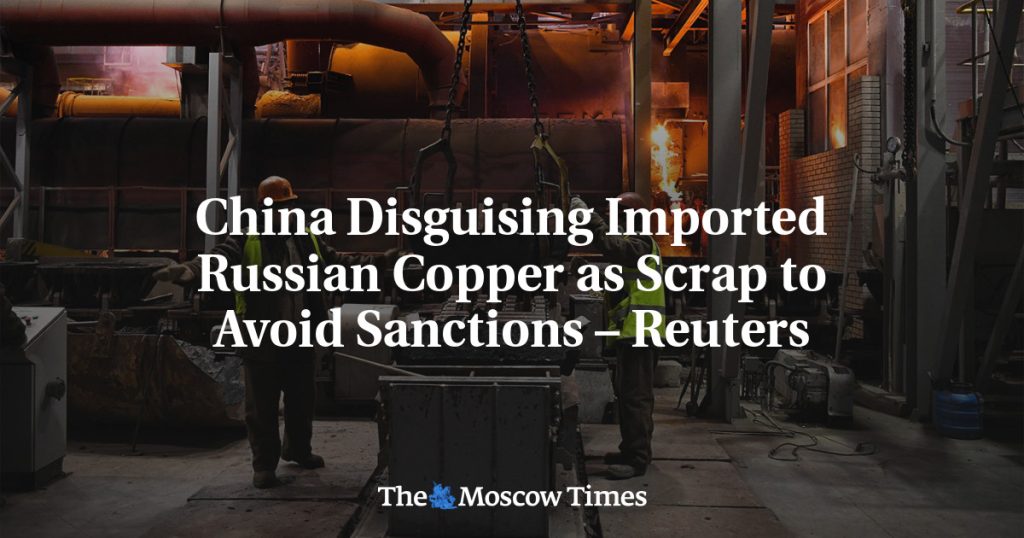China has allegedly been disguising imported Russian copper wire as scrap metal in order to evade taxes and circumvent the impact of Western sanctions. This practice was revealed through customs data and anonymous sources familiar with the situation, as reported by Reuters. The copper wire rod is typically used in the production of power cables, while copper scrap consists of used products chopped into small pieces. The process involves a Chinese intermediary shredding newly imported Russian copper wire rod in the Xinjiang Uyghur region, which borders Russia. By disguising new copper as scrap, both Russia and China are able to take advantage of differences in trade tariffs and profit from the situation.
The disguising of new copper as scrap also makes it more difficult to trace, making it easier to sell to Chinese manufacturers and continue doing business with buyers who are wary of dealing with Russian companies that are under Western sanctions. It is important to note that there are no legal restrictions on buying metal from sanctioned Russian firms. In December, the Russian Copper Company, Russia’s third-largest copper producer, reportedly delivered around 8,000 metric tons of copper wire rod to China, despite being sanctioned by Western countries. Although there is no public access to customs data on Chinese imports of copper wire rod, there is evidence of a significant increase in copper scrap imports from Russia since December, compared to negligible Russian scrap exports to China.
In December, China declared 6,500 metric tons of copper scrap imports, while Russian data showed only 73 tons exported that month. By February, copper scrap imports had reached 11,600 tons, significantly higher than the average of around 100 tons in 2021 and 2022. Prior to December, Russia had not been a major seller of scrap copper to China. The situation has raised concerns about the accuracy of the data being reported and the potential impact on global trade dynamics. The use of disguise to avoid taxes and sanctions reflects the complex nature of international trade relationships and the lengths to which countries may go to protect their economic interests.
A Chinese manufacturing source described the scrap from Russia as de facto copper rod, suggesting that the materials being imported are not being accurately categorized. The Russian Federal Customs Service ceased publishing trade data in April 2022, shortly after Russian troops invaded Ukraine. This development has further complicated the ability to track and monitor trade activities between Russia and China. The implications of these actions on the global copper market and the broader context of geopolitical tensions between Russia, China, and Western countries remain to be fully understood. The use of deception in international trade underscores the challenges faced in enforcing regulations and promoting transparency in the global economy.


